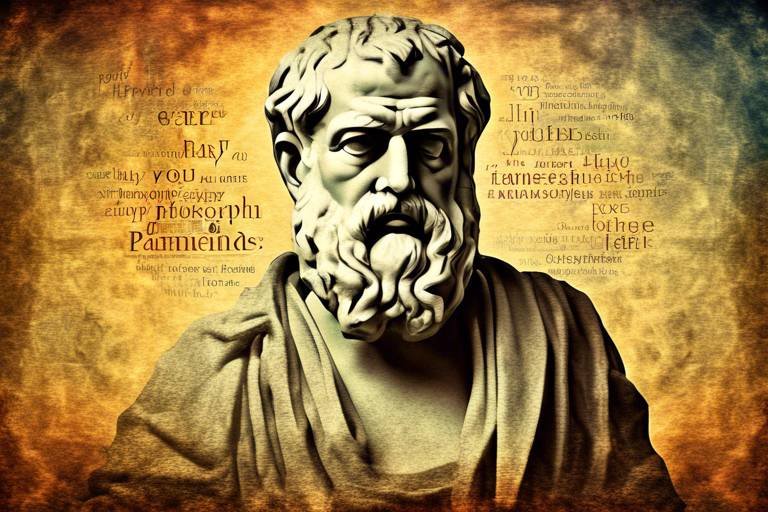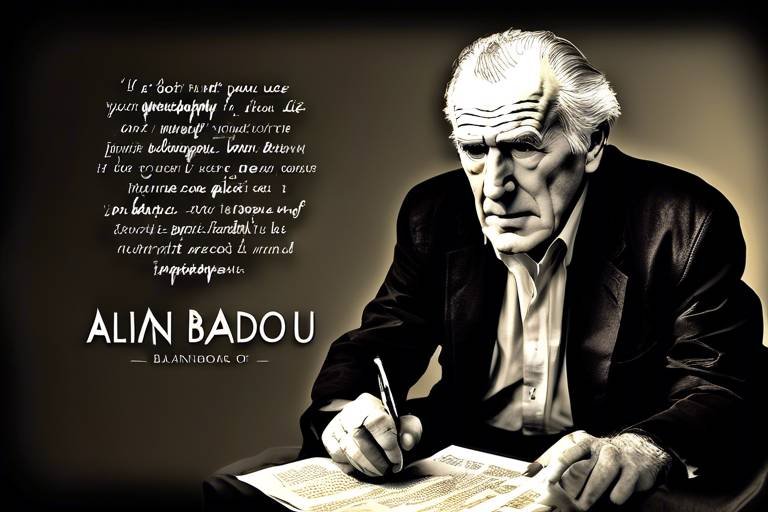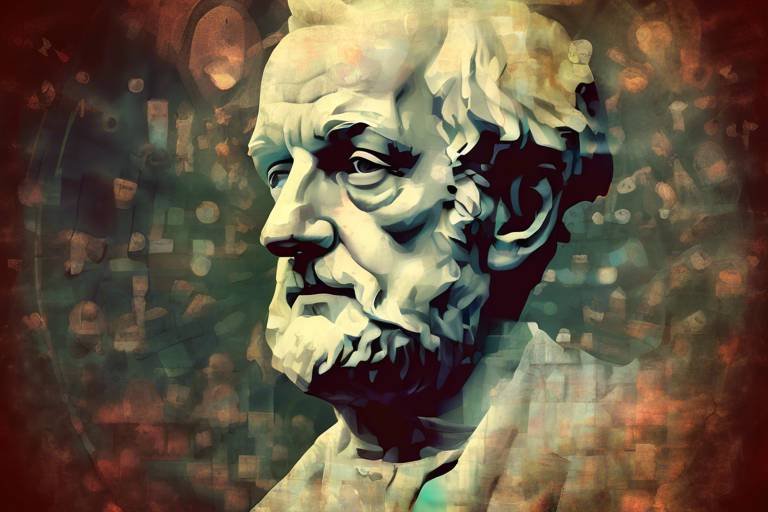The Metaphysical Thoughts of Philosopher Parmenides
Parmenides, a pre-Socratic philosopher from ancient Greece, has left an indelible mark on the landscape of metaphysical thought. His ideas, though formulated over two millennia ago, continue to resonate with modern philosophical inquiries into the nature of existence and reality. Imagine standing at the edge of a vast ocean, where the waves represent the constant change of life, yet beneath the surface lies an unchanging foundation—the water itself. This analogy captures Parmenides' radical assertion that what truly exists is singular, eternal, and unchanging. In this article, we will dive deep into his profound metaphysical ideas, exploring the intricate tapestry of being, knowledge, and the nature of reality that have influenced countless thinkers across centuries.
At the heart of Parmenides' philosophy is his revolutionary concept of being. He boldly claims that being is not only unchanging but also the only true reality. To him, the idea of change is nothing more than an illusion, a deceptive veil that clouds our understanding of existence. Picture a mirage in the desert—what seems real is merely a trick of the light. Parmenides challenges us to question our perceptions and confront the uncomfortable truth that change and non-being are mere shadows of our imagination. His assertion that “what is, is; and what is not, is not” serves as a cornerstone for his metaphysical framework, compelling us to rethink our very understanding of reality.
Diving further into Parmenides' philosophy, we encounter his critical distinction between the way of truth and the way of opinion. The way of truth leads us toward a singular, unchanging reality, while the way of opinion is fraught with the pitfalls of sensory perception. Have you ever considered how often our senses deceive us? Just like a funhouse mirror that distorts our reflection, our perceptions can lead us astray from grasping the true essence of existence. Parmenides urges us to look beyond the surface, to peel back the layers of illusion, and to seek the underlying truth that persists despite the chaos of sensory experiences.
In Parmenides' framework, the way of truth is a profound revelation. He posits that truth is singular and immutable, a stark contrast to the multiplicity of opinions that arise from our sensory experiences. This notion of truth is not just a philosophical abstraction; it has real implications for how we pursue knowledge. If we accept that there is a singular truth, then our quest for understanding becomes a journey toward discovering that unchanging reality. Parmenides invites us to embrace a more rigorous approach to knowledge, one that values rational thought over the unreliable nature of perception.
Understanding Parmenides' views on truth raises significant questions about the nature of knowledge itself. If what we perceive is often misleading, how can we claim to know anything at all? This dilemma leads us to consider the role of reason and logic in our pursuit of knowledge. Parmenides suggests that true knowledge is achieved through rational contemplation rather than sensory experience. It’s like navigating a ship at sea; while the waves may toss you around, it’s the steady compass of reason that guides you safely to shore.
To fully appreciate Parmenides' philosophy, one must contrast it with that of his contemporary, Heraclitus. While Parmenides champions the notion of permanence, Heraclitus famously asserts that “everything flows,” emphasizing the constant state of change in the universe. This philosophical tension between the two thinkers creates a rich dialogue that has persisted through the ages. Imagine a dance where one partner is fixed in place while the other spins and twirls; this dynamic encapsulates the clash between Parmenides’ steadfastness and Heraclitus’ fluidity.
In stark contrast to the way of truth, the way of opinion encompasses our everyday experiences shaped by sensory perception. Parmenides acknowledges that while the way of opinion may provide us with a semblance of understanding, it ultimately leads us away from the truth. It’s like chasing after a mirage in the desert—what seems real is merely an illusion, a distraction from the deeper reality that lies beneath. This section of Parmenides' thought invites us to reflect on the significance of our perceptions and how they influence our understanding of the world around us.
The impact of Parmenides' ideas extends far beyond his time, profoundly influencing subsequent philosophical thought. His metaphysical concepts have shaped the works of great thinkers such as Plato and Aristotle, who grappled with his notions of being and reality. Parmenides' insistence on the unity of being laid the groundwork for Plato’s theory of forms, where he distinguished between the material world and the ideal realm of forms. This relationship between Parmenides and Plato highlights the enduring legacy of Parmenides’ ideas in the annals of philosophy.
Exploring the connection between Parmenides and Plato reveals the profound influence of Parmenides' ideas on the latter's philosophical framework. Plato's theory of forms, which posits the existence of an ideal realm beyond our sensory experiences, echoes Parmenides' assertion of a singular, unchanging reality. The interplay between these two philosophers invites us to consider the implications of their thoughts on our understanding of existence. Just as a painter uses a palette to create a masterpiece, Plato draws from Parmenides' insights to craft a richer understanding of reality.
Even in modern philosophy, Parmenides' influence remains palpable. Contemporary thinkers continue to grapple with his metaphysical insights, prompting discussions about the nature of existence and reality. His ideas challenge us to reconsider the foundations of our beliefs and the reliability of our perceptions. In a world where the boundaries of reality are increasingly blurred by technology and media, Parmenides' call to seek the unchanging truth is more relevant than ever. His legacy serves as a reminder that beneath the ever-shifting sands of perception lies a deeper reality waiting to be uncovered.
- Who was Parmenides? Parmenides was a pre-Socratic philosopher known for his work on metaphysics, particularly his ideas about being and reality.
- What is the way of truth according to Parmenides? The way of truth refers to the understanding of a singular, unchanging reality that is not influenced by sensory perceptions.
- How does Parmenides differ from Heraclitus? Parmenides emphasizes permanence and the illusion of change, while Heraclitus believes in constant change and flux.
- What impact did Parmenides have on later philosophers? Parmenides significantly influenced philosophers such as Plato and Aristotle, shaping their thoughts on being and the nature of reality.

Parmenides' Concept of Being
Parmenides, a towering figure in the realm of ancient philosophy, introduces a concept of being that is nothing short of revolutionary. He proposes that being is unchanging and eternal, a radical departure from the views of his contemporaries. Imagine standing at the edge of a vast, unyielding ocean—this is how Parmenides perceives existence: a single, immutable entity that does not waver or shift. To him, the notion of change is merely an illusion, a deceptive mirage that distracts us from the true essence of reality. This perspective forces us to confront a challenging question: if change is an illusion, what does that say about our everyday experiences?
In his poem, Parmenides delineates a path of reasoning that leads to the recognition of this singular nature of being. He argues that while our senses may lead us to believe in a world filled with change and diversity, true understanding comes from rational thought. This distinction between sensory perception and rational insight is crucial; it sets the stage for a profound inquiry into the nature of existence itself. Parmenides invites us to consider the following:
- What is the essence of being? Is it something we can touch and feel, or is it an abstract concept that transcends our physical reality?
- How do our perceptions shape our understanding of existence? Are we merely experiencing shadows on the wall, as Plato later suggests, or are we grasping the true nature of reality?
To further illustrate his concept, Parmenides contrasts being with non-being, which he dismisses as a logical impossibility. How can we even speak of non-being if it does not exist? This leads to the conclusion that the only thing we can assert with certainty is that being exists and is the foundation of all thought and existence. This radical assertion challenges us to rethink our understanding of reality and encourages a deeper exploration into what it means to truly "be."
Parmenides' ideas have sparked a myriad of discussions and debates throughout history, inviting philosophers to grapple with the implications of his thoughts. His assertion that "what is, is" and "what is not, is not" serves as a fundamental principle that underpins much of metaphysical inquiry. This bold declaration raises significant implications for knowledge, truth, and the very fabric of reality itself. As we delve deeper into his philosophy, we begin to see how his concept of being has not only shaped ancient thought but continues to resonate in modern philosophical discourse.
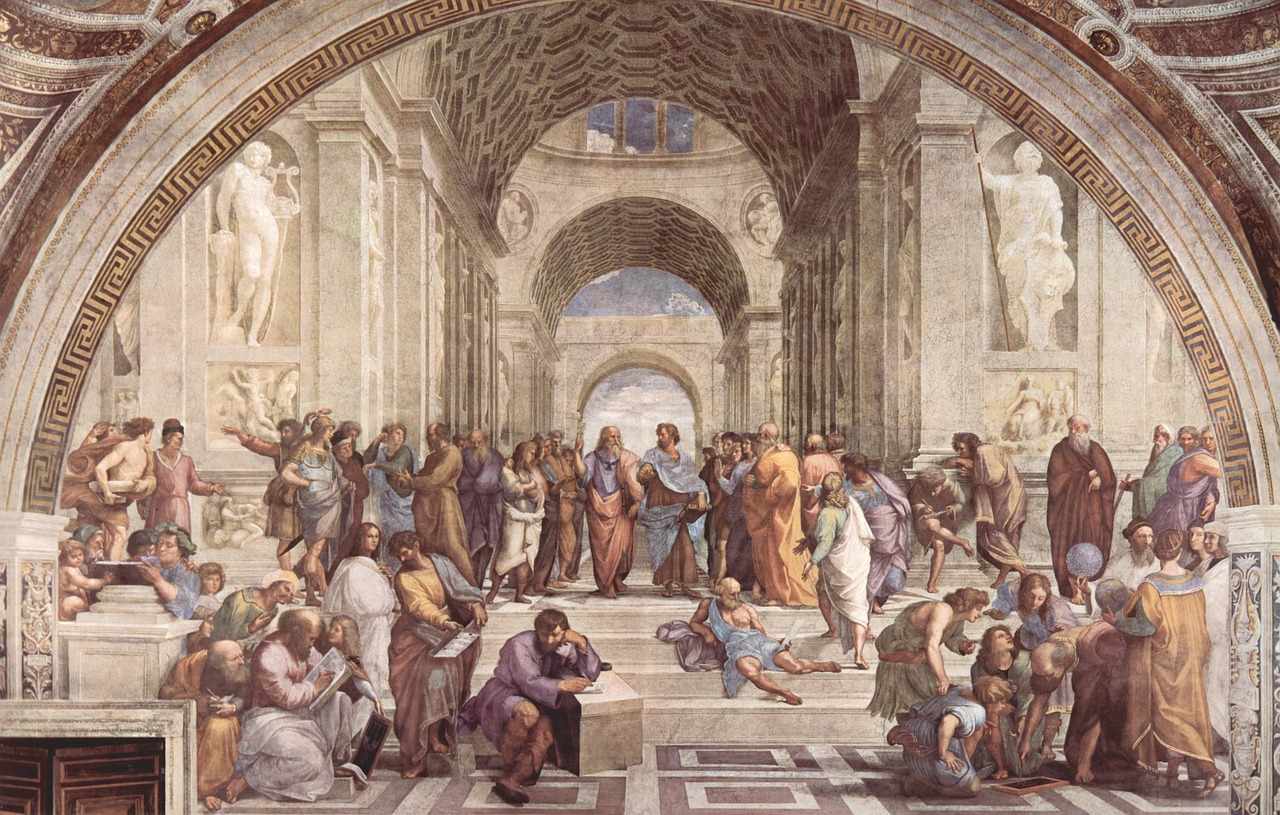
The Nature of Reality
When we dive into the depths of Parmenides' philosophy, we encounter a mind-bending distinction that has puzzled thinkers for centuries: the way of truth versus the way of opinion. Parmenides boldly asserts that what we perceive through our senses is not the ultimate reality; rather, it is a mere shadow, a flickering illusion that distracts us from the unchanging essence of existence. Imagine standing in a dark room, where the only light comes from a flickering candle. The shadows dance on the walls, creating a chaotic scene that can be misleading. This is akin to how Parmenides views our sensory experiences—deceptive and unreliable.
He posits that true reality is characterized by permanence and unity. In his view, being is not subject to change; it is eternal and indivisible. To Parmenides, the notion of change is a contradiction. How can something that truly exists undergo transformation? If it changes, it must either become something else or cease to exist entirely. This radical idea challenges the very fabric of our understanding of existence. It raises the question: if change is an illusion, what does that say about our daily experiences and the world around us?
Parmenides categorizes knowledge into two realms: the way of truth, which aligns with reason and logic, and the way of opinion, which is rooted in sensory perception. The way of truth is a path that leads to the understanding of being, a path paved with rational thought and devoid of the distractions of the physical world. In contrast, the way of opinion is fraught with confusion and misinterpretation, shaped by our senses and emotions. It’s like trying to navigate a maze while blindfolded; you may stumble upon truths, but they’re often obscured by the walls of perception.
To illustrate this further, consider the following table that summarizes the key differences between these two ways:
| Aspect | Way of Truth | Way of Opinion |
|---|---|---|
| Nature | Unchanging and eternal | Subject to change and illusion |
| Knowledge Type | Rational and logical | Sensory and emotional |
| Perception | True reality | Misperceptions and opinions |
This dichotomy forms the backbone of Parmenides' metaphysical inquiry and invites us to reflect on how we perceive reality. Are we merely passive observers, or can we actively seek out the truth that lies beyond our immediate experiences? Parmenides encourages us to engage critically with our perceptions, urging us to peel back the layers of illusion to reveal the singular truth that underlies all existence.
In essence, Parmenides' exploration of the nature of reality is not just an academic exercise; it is a profound challenge to how we understand our lives and the universe. His ideas compel us to question the reliability of our senses and to seek a deeper understanding of what it means to exist. As we ponder these philosophical questions, we might find ourselves grappling with the very essence of reality itself, leading us to a greater awareness of the world and our place within it.
- What is Parmenides' main argument about change? Parmenides argues that change is an illusion and that true reality is unchanging and eternal.
- How does Parmenides differentiate between truth and opinion? He distinguishes truth as being rational and unchanging, while opinion is based on sensory perceptions, which can be misleading.
- Why is Parmenides considered a foundational figure in Western philosophy? His radical ideas about being and reality have influenced many philosophers, including Plato and Aristotle, shaping metaphysical thought.
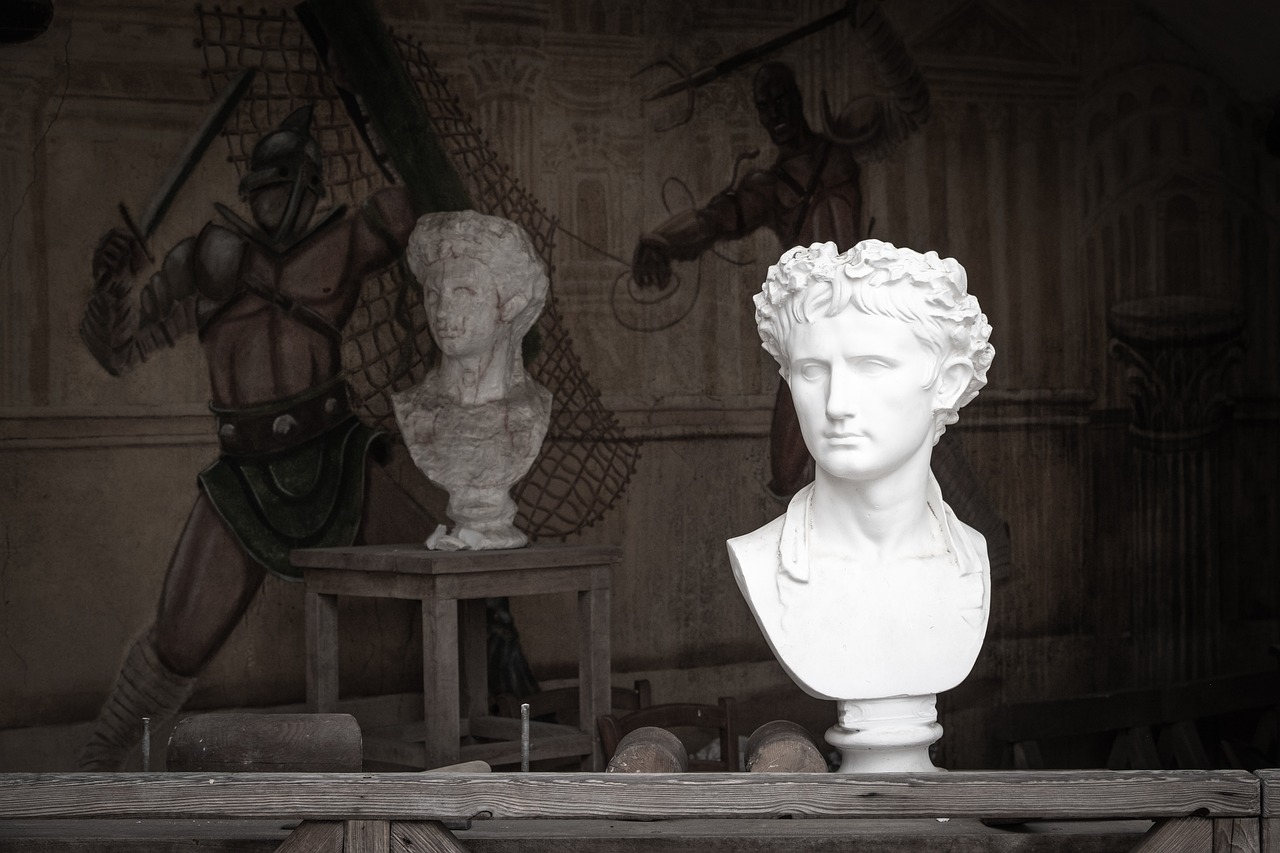
The Way of Truth
Parmenides' Way of Truth is a cornerstone of his philosophy, representing a stark departure from the common perceptions of reality that most people hold. He posits that there is only one true reality, which is unchanging, eternal, and indivisible. To Parmenides, the notion of change is not just misleading; it's fundamentally impossible. Imagine trying to grasp water with your hands—no matter how tightly you hold on, it slips away. This is akin to the illusion of change that Parmenides warns us against. He challenges us to reconsider our understanding of existence, urging us to recognize that what we perceive through our senses often leads us astray.
In his poem, Parmenides articulates this concept through a journey where he encounters two paths: the path of truth and the path of opinion. The path of truth is characterized by certainty and clarity, while the path of opinion is shrouded in ambiguity and deception. He emphasizes that true knowledge is not derived from sensory experiences but through rational thought and reasoning. This distinction is crucial for understanding his metaphysical framework.
To further illustrate this, consider the following key aspects of the Way of Truth:
- Unity of Being: Parmenides asserts that being is one and cannot be divided. If it were divisible, it would imply the existence of non-being, which he argues is impossible.
- Timelessness: True reality is beyond time and space. It exists outside the limitations of our physical world, making it eternal and unchanging.
- Rational Understanding: Knowledge of the Way of Truth comes from intellectual insight rather than sensory perception. Parmenides encourages us to engage our minds to grasp the essence of being.
Parmenides' assertion that "what is, is" and "what is not, is not" encapsulates his belief in the permanence of reality. This philosophical stance not only challenges the superficial judgments we make based on our senses but also invites us to delve deeper into the essence of existence. By separating the true from the false, Parmenides lays the groundwork for a more profound inquiry into the nature of knowledge itself. His ideas resonate through the ages, prompting future philosophers to grapple with the implications of his thoughts on truth and reality.
Ultimately, Parmenides' Way of Truth serves as a beacon for those seeking to understand the deeper layers of existence. It compels us to question our assumptions and encourages a pursuit of knowledge that transcends mere appearances. In a world where change is often seen as a constant, Parmenides stands firm in his conviction that the essence of being remains unchanged, waiting for us to discover it through reasoned thought.

way of truth
Parmenides' is a cornerstone of his philosophical thought, emphasizing the existence of a singular, unchanging reality. Unlike the chaotic and ever-changing world that our senses perceive, Parmenides argues that true understanding lies beyond these fleeting experiences. He posits that reality is not a collection of changing phenomena but rather a constant, eternal state of being. This perspective invites us to question: if everything we see and feel is subject to change, how can we ever grasp the true essence of existence?
To illustrate this concept, Parmenides introduces a dichotomy between truth and opinion. The way of truth is characterized by logical reasoning and a deep understanding of existence, while the way of opinion is clouded by sensory experiences and subjective interpretations. This distinction is crucial, as it challenges us to look beyond our immediate perceptions and seek a deeper understanding of reality. In his poem, Parmenides famously states that "what is, is," reinforcing the idea that being is the only true reality, and anything that suggests change or non-being is merely an illusion.
One of the most fascinating implications of Parmenides' way of truth is its impact on philosophical inquiry. By asserting that reality is unchanging, he invites us to consider the nature of knowledge itself. If knowledge is merely a reflection of our sensory experiences, can we ever truly know anything? This question leads to a profound exploration of epistemology, as we grapple with the limitations of human perception and the quest for absolute truth.
Moreover, Parmenides' insistence on the unity of being raises significant questions about the nature of existence. If everything is interconnected and part of a singular reality, how do we account for the diversity and multiplicity we observe in the world? Parmenides encourages us to embrace the paradox of existence, suggesting that while our senses may deceive us, there lies a deeper truth that transcends our everyday experiences.
In summary, the way of truth, as articulated by Parmenides, serves as a powerful reminder of the importance of seeking knowledge beyond the surface. It challenges us to engage in rigorous philosophical inquiry and to recognize the limitations of our sensory perceptions. By doing so, we may uncover the profound truths that lie at the heart of existence itself.
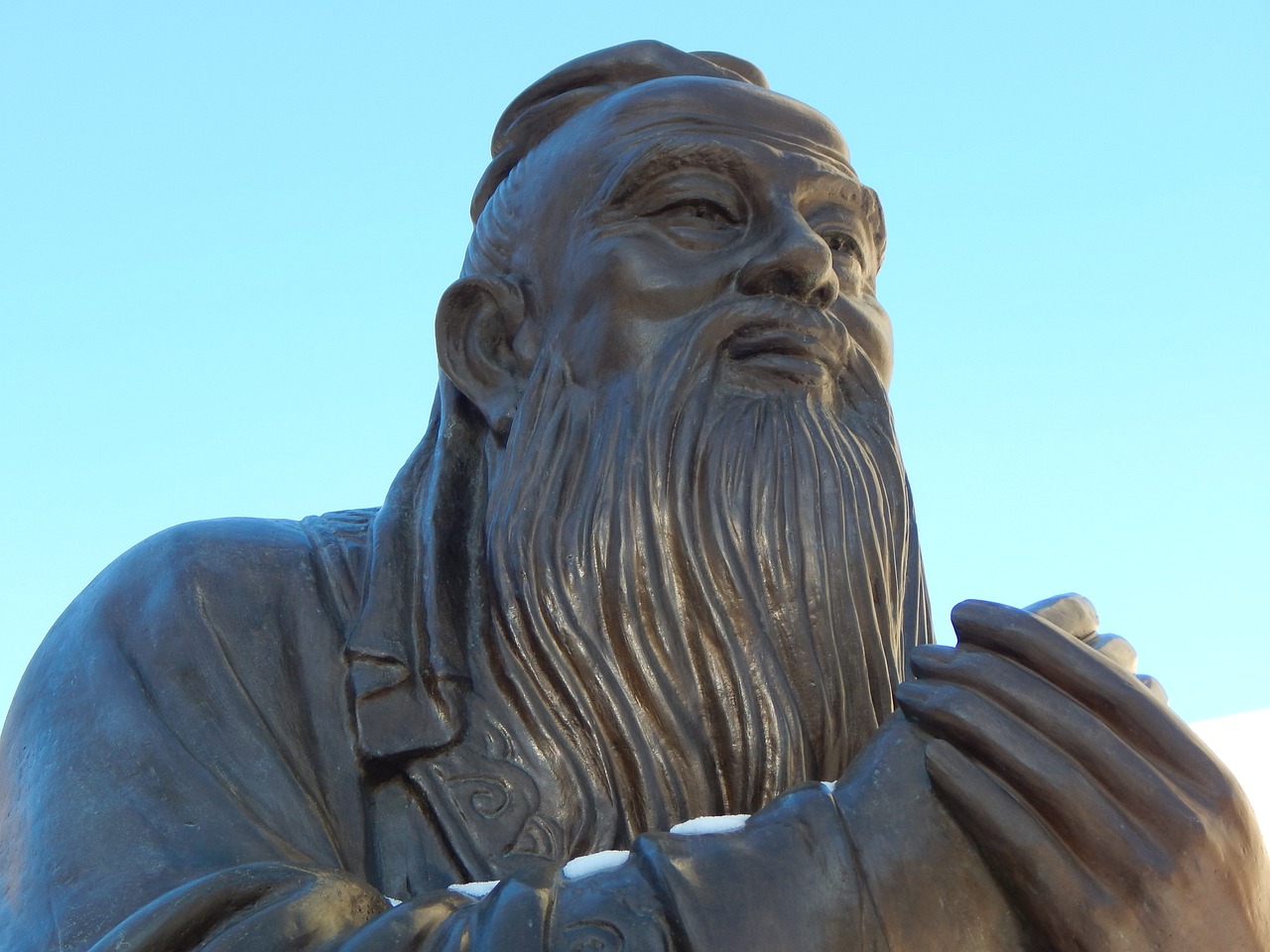
reveals his belief in a singular, unchanging reality. This section discusses how he defines truth and its implications for philosophical inquiry.
Parmenides' way of truth reveals his belief in a singular, unchanging reality. Imagine standing at the edge of a vast ocean, where the waves crash and recede, creating an illusion of constant movement. Yet, beneath the surface, the water remains the same. This metaphor encapsulates Parmenides' philosophy: while the world around us appears to change, the essence of being is eternal and unaltered. According to him, to truly understand existence, one must look beyond sensory experiences, which can often deceive us.
In his poem, Parmenides articulates that truth is not a collection of perceptions but rather a singular, absolute reality that transcends the physical world. He posits that what is real must be unchanging, for if it were to change, it would cease to be what it is. This leads us to the profound implication of his philosophy: if change is an illusion, then our understanding of reality must be redefined. Parmenides urges us to recognize that our senses can lead us astray, making us believe in a world of multiplicity and flux, while the true nature of reality is a unified whole.
Parmenides' definition of truth is pivotal for philosophical inquiry. He challenges us to consider the nature of knowledge itself. If we accept that reality is a singular entity, then knowledge must also reflect this unity. Knowledge, in Parmenides' view, is not merely about accumulating facts or experiences; it is about grasping the essence of being. This perspective invites us to engage in a deeper form of inquiry, one that seeks to uncover the fundamental truths underlying our perceptions. It raises critical questions: What does it mean to know something? How do we differentiate between what is true and what is merely an opinion?
Furthermore, Parmenides' ideas have significant implications for how we approach philosophical discourse. By advocating for a clear distinction between truth and opinion, he sets the stage for future philosophers to explore the nature of knowledge and existence. His insistence on the importance of reason over sensory experience encourages a more rigorous examination of our beliefs. In this way, Parmenides not only shapes the landscape of metaphysics but also lays the groundwork for epistemology, the study of knowledge itself.

Implications for Knowledge
Understanding Parmenides' views on truth inevitably leads us to grapple with the very essence of knowledge. For Parmenides, knowledge is not merely a collection of sensory experiences or opinions; rather, it is a profound recognition of a singular and unchanging reality. This perspective raises critical questions: What does it mean to truly know something? How do we reconcile our sensory perceptions with the idea of an eternal truth?
Parmenides suggests that knowledge should be rooted in rational thought rather than in the unreliable nature of sensory experience. He posits that our senses can deceive us, leading us to believe in the reality of change and multiplicity when, in fact, there is only a singular, unchanging existence. This dichotomy between sensory perception and rational understanding creates a fascinating tension in the pursuit of knowledge. To illustrate this, consider the following points:
- Knowledge as Certainty: For Parmenides, true knowledge is synonymous with certainty. It is an unwavering understanding of being, devoid of the fluctuations that characterize our everyday experiences.
- Illusion of Change: The belief in change and diversity is merely an illusion. Knowledge, therefore, must transcend these illusions to grasp the essence of reality.
- Rational Inquiry: Engaging in philosophical inquiry allows individuals to move beyond the superficial layers of perception, diving deeper into the realm of truth.
This leads us to ponder the implications of Parmenides' philosophy on our understanding of knowledge today. If we accept that knowledge is not derived from sensory experience, how do we validate what we know? This question is pivotal in the realm of epistemology, where the nature and limits of knowledge are continuously examined. Parmenides' influence prompts contemporary thinkers to explore the boundaries between what is perceived and what is understood, challenging us to reconsider the foundations of our beliefs.
In conclusion, Parmenides' radical approach to knowledge encourages a shift from empirical observation to a more abstract reasoning. This transformation not only influences philosophical discourse but also has far-reaching implications in various fields, including science, ethics, and metaphysics. By questioning the reliability of our senses, Parmenides opens the door to a richer, more nuanced understanding of existence that continues to resonate with modern thinkers.
- What is Parmenides' main philosophical idea? Parmenides primarily argues that reality is unchanging and that change is an illusion, emphasizing the importance of rational thought over sensory perception.
- How does Parmenides differentiate between truth and opinion? He distinguishes truth as the understanding of a singular, eternal reality, while opinion is tied to our sensory experiences, which can be misleading.
- What influence did Parmenides have on later philosophers? His ideas significantly impacted philosophers like Plato and Aristotle, shaping discussions on the nature of reality and existence.

Contrast with Heraclitus
When we dive into the philosophical waters of ancient Greece, we find ourselves caught in a fascinating current between two monumental figures: Parmenides and Heraclitus. While Parmenides champions the notion of a static, unchanging reality, Heraclitus, with his famous assertion that "you cannot step into the same river twice," presents a starkly different perspective. This contrast between their philosophies is not just a matter of semantics; it represents a fundamental divergence in how we understand existence itself.
To put it simply, Parmenides posits that being is unchanging and that any perception of change is merely an illusion. For him, reality is like a solid rock, unyielding and eternal. In contrast, Heraclitus argues that everything is in a state of flux, much like a river that is always flowing, constantly reshaping itself. This philosophical dichotomy can be likened to two artists painting the same landscape: one captures the scene at a single moment in time, while the other portrays the landscape as it changes with the seasons.
Let's break down their contrasting views:
| Aspect | Parmenides | Heraclitus |
|---|---|---|
| Nature of Reality | Unchanging and eternal | Constantly changing and dynamic |
| Perception of Change | Illusion | Fundamental aspect of existence |
| Philosophical Implications | Truth is singular and absolute | Truth is relative and multifaceted |
This philosophical clash raises intriguing questions about knowledge and perception. Parmenides would argue that relying on our senses leads us astray, while Heraclitus would counter that our experiences are essential to understanding the world. It’s a bit like trying to find your way in a foggy landscape: Parmenides insists on navigating by the stars, claiming they represent the only true path, while Heraclitus encourages you to feel your way through the mist, trusting your instincts and experiences.
Ultimately, the contrast between Parmenides and Heraclitus has sparked endless debates among philosophers, shaping the trajectory of Western thought. Their ideas challenge us to consider: Is reality a stable foundation upon which we can build knowledge, or is it a fluid tapestry, woven from the threads of our experiences? This ongoing dialogue continues to resonate, reminding us that the quest for understanding is as dynamic as the philosophies themselves.

The Way of Opinion
In contrast to the profound and unwavering Way of Truth, Parmenides introduces us to the intriguing realm of the Way of Opinion. This pathway is where our sensory experiences reside, a world that feels tangible and real, yet is often misleading. Imagine walking through a vibrant market filled with colorful stalls and enticing aromas. Everything seems vivid and alive, but according to Parmenides, this sensory reality is just a façade, a mere shadow of true existence.
Parmenides argues that while our senses provide us with a plethora of information, they can also lead us astray. The Way of Opinion encompasses the beliefs and perceptions shaped by our experiences, but these can be deceptive. For instance, consider the optical illusions we encounter in daily life. What appears to be a solid object may, upon closer inspection, reveal itself as something entirely different. This analogy reflects Parmenides' view that our perceptions can distort the essence of reality.
To further illustrate this point, let's break down the characteristics of the Way of Opinion:
- Subjectivity: Each person's opinion is colored by their unique experiences and emotions, leading to a diverse array of interpretations of the same reality.
- Illusion: Just like a mirage in the desert, opinions can create a false sense of understanding, leading us away from the truth.
- Changeability: Unlike the unchanging nature of truth, opinions are fluid and can shift based on new experiences or information.
In essence, the Way of Opinion serves as a reminder of our limitations as humans. While we navigate our lives based on what we see and feel, Parmenides urges us to question the validity of these perceptions. Are we truly grasping the essence of reality, or are we merely skimming the surface? This philosophical inquiry into the nature of opinion and perception challenges us to seek deeper understanding beyond mere appearances.
Ultimately, Parmenides' exploration of the Way of Opinion invites us to engage in a critical examination of our beliefs. It encourages us to distinguish between what we perceive and what truly is. By doing so, we can aspire to align ourselves more closely with the Way of Truth, striving for a deeper comprehension of existence that transcends the fleeting nature of sensory experiences.
- What is the main difference between the Way of Truth and the Way of Opinion?
The Way of Truth represents an unchanging reality, while the Way of Opinion is based on subjective perceptions that can mislead us. - How does Parmenides' philosophy relate to modern thought?
Parmenides' ideas have influenced various philosophical discussions about the nature of reality, existence, and the reliability of sensory perception. - Can we ever truly know the Way of Truth?
While Parmenides suggests that the Way of Truth is singular and eternal, he also acknowledges the challenge of achieving this understanding due to the distractions of sensory experiences.

way of opinion,
In contrast to the profound and unwavering way of truth, Parmenides introduces us to the intriguing realm of the way of opinion. This perspective is rooted in our sensory experiences and perceptions, which can often lead us astray. Imagine walking through a dense fog; while you may see shapes and shadows, the reality of what lies ahead can be obscured. Similarly, Parmenides argues that our senses can deceive us, painting a picture of a world in flux and chaos, rather than the stable and unchanging reality he champions. The way of opinion encompasses all those beliefs and notions that arise from our interactions with the world around us, yet it lacks the certainty and permanence of truth.
To illustrate this, consider how we often rely on our senses to form judgments about reality. We see colors, hear sounds, and feel textures, all of which create a rich tapestry of experiences. However, Parmenides challenges us to question the validity of these perceptions. Are we truly experiencing reality, or are we merely interpreting it through a lens that is inherently flawed? This leads us to a critical distinction: while the way of truth is about what is, the way of opinion is about what seems to be. In this sense, opinions are akin to shadows—fleeting and unreliable, yet they can dominate our understanding if we allow them to.
Parmenides' exploration of the way of opinion emphasizes that while these sensory experiences are vital to our existence, they should not be mistaken for the ultimate truth. He invites us to reflect on how often we accept opinions without scrutiny, allowing them to shape our beliefs and actions. For instance, societal norms and cultural beliefs can heavily influence our perceptions of reality. In a world where misinformation can spread like wildfire, Parmenides' insights feel more relevant than ever. The challenge lies in discerning between what is real and what is merely an illusion crafted by our senses or societal pressures.
Furthermore, Parmenides posits that the way of opinion leads to a multiplicity of views, creating a chaotic landscape of beliefs that can confuse rather than clarify our understanding of existence. This is where the tension between the two ways becomes apparent. The way of truth offers a singular, unchanging reality, while the way of opinion presents a kaleidoscope of subjective interpretations. To navigate this complexity, Parmenides urges us to seek knowledge that transcends mere opinion, to strive for a deeper understanding of what it means to exist.
In summary, the way of opinion serves as a crucial counterpoint to Parmenides' views on truth. It reminds us that while our sensory experiences are valuable, they are not the definitive measure of reality. By acknowledging the limitations of our perceptions, we can embark on a journey toward a more profound understanding of existence. So, the next time you encounter a belief or opinion, ask yourself: is this a reflection of the true nature of reality, or merely a shadow dancing in the fog?
- What is the main difference between the way of truth and the way of opinion?
The way of truth refers to the unchanging and eternal reality, while the way of opinion encompasses the subjective perceptions and beliefs formed through sensory experiences. - How does Parmenides view sensory experiences?
Parmenides believes that sensory experiences can be deceptive and do not accurately represent the true nature of reality. - Why is the way of opinion significant in understanding human perception?
The way of opinion highlights the multiplicity of beliefs that can arise from our interactions with the world, emphasizing the need for critical examination of what we perceive. - How can Parmenides' ideas be applied today?
His insights encourage us to question the validity of our beliefs and perceptions, especially in an age where misinformation can easily shape public opinion.

which encompasses the world of sensory experiences. This section discusses its significance in understanding human perception.
Parmenides introduces us to the way of opinion, a fascinating realm that encompasses the world of sensory experiences. Unlike the unchanging reality of the way of truth, the way of opinion is where we encounter the chaotic and often misleading nature of our perceptions. Imagine walking through a bustling market: the vibrant colors, the cacophony of sounds, and the myriad of scents create a rich tapestry of experiences. Yet, while these sensory inputs are undeniably real, they can also distort our understanding of what truly is. Parmenides argues that our senses can deceive us, leading us to believe in a reality that is, in fact, an illusion.
This distinction is crucial because it highlights the limitations of human perception. While we rely on our senses to navigate the world, Parmenides challenges us to consider: are we truly seeing the world as it is, or are we merely interpreting a series of fleeting impressions? For instance, think about how two people can witness the same event and come away with entirely different interpretations. This phenomenon exemplifies the subjective nature of sensory experience, which Parmenides categorizes as the way of opinion.
To further illustrate this concept, consider the following table that contrasts the way of truth with the way of opinion:
| Aspect | Way of Truth | Way of Opinion |
|---|---|---|
| Nature | Unchanging and eternal | Dynamic and deceptive |
| Understanding | True reality | Subjective perceptions |
| Knowledge | Objective and certain | Relative and uncertain |
The significance of the way of opinion lies in its role in shaping human understanding. It is through our sensory experiences that we form beliefs, make decisions, and engage with the world around us. However, Parmenides urges us to question the validity of these beliefs. Are they rooted in the unchanging truth, or are they simply products of our sensory experiences? This inquiry is not merely philosophical; it has practical implications for how we approach knowledge and understanding in our daily lives.
In essence, the way of opinion serves as a reminder of the complexities of human perception. While our senses provide us with a rich array of experiences, they also come with the caveat of potential deception. By recognizing this, we can strive for a deeper understanding of reality, one that goes beyond mere appearances and seeks the underlying truths that Parmenides so passionately advocated.

Influence on Later Philosophers
Parmenides' philosophical insights didn't just echo in the halls of ancient Greece; they resonated throughout the ages, profoundly influencing a myriad of thinkers who came after him. His radical ideas about being and non-being challenged the very foundation of philosophical inquiry. Imagine a pebble dropped into a still pond—the ripples of Parmenides' thoughts spread outwards, affecting the surface of philosophical discourse for centuries. His assertion that change is an illusion and that reality is a singular, unchanging entity prompted later philosophers to grapple with the implications of his ideas.
One of the most significant figures influenced by Parmenides was Plato. The connection between these two philosophers is fascinating, as it reveals how Parmenides' ideas shaped the very fabric of Western thought. Plato, in his quest to understand the nature of reality, drew heavily from Parmenides' concept of a singular truth. He introduced the theory of forms, which posits that the material world is merely a shadow of a higher, unchanging reality. This can be likened to a painter who uses a canvas to express an idea that exists only in their mind. In this way, Parmenides' influence is woven into the tapestry of Plato's philosophy, emphasizing the distinction between the transient physical world and the eternal realm of forms.
Furthermore, Aristotle, another towering figure in philosophy, also felt the weight of Parmenides' ideas. While Aristotle diverged from Parmenides in many respects, he could not ignore the foundational questions posed by his predecessor. Aristotle's exploration of substance and change can be seen as a direct response to Parmenides' challenge. He sought to reconcile the existence of change with the need for a stable reality, thus creating a philosophical framework that allowed for both permanence and flux. It's as if Aristotle was trying to dance between the raindrops of Parmenides' assertions, acknowledging their significance while carving out his own path.
To illustrate the impact of Parmenides on later philosophical thought, consider the following table:
| Philosopher | Key Ideas Influenced by Parmenides |
|---|---|
| Plato | Theory of Forms; Distinction between material and ideal reality |
| Aristotle | Concept of substance; Reconciliation of change and permanence |
| Heidegger | Existential inquiry into Being; Influence on ontology |
Even in modern philosophy, Parmenides' metaphysical insights continue to provoke thought and discussion. Contemporary philosophers often revisit his ideas when debating the nature of existence and reality. Some may view him as a precursor to existentialism, while others might see him as an early thinker in the realm of ontology. His legacy is a testament to the power of philosophical inquiry, where questions about being and knowledge remain relevant, challenging us to think deeper about our own perceptions and beliefs.
In conclusion, Parmenides' influence is a thread that runs through the history of philosophy, connecting ancient thinkers to modern ones. His ideas compel us to confront the nature of reality, urging us to question not just what we perceive, but what it means to truly know. As we continue to explore these profound questions, Parmenides remains a guiding light, illuminating the path of philosophical thought.
- Who was Parmenides? Parmenides was a pre-Socratic philosopher who is best known for his work on metaphysics and ontology, particularly his ideas about being and reality.
- What is the main idea of Parmenides' philosophy? His main idea is that change and non-being are illusions, and that reality is a singular, unchanging entity.
- How did Parmenides influence Plato? Parmenides influenced Plato's theory of forms, which distinguishes between the material world and a higher, unchanging reality.
- What impact did Parmenides have on modern philosophy? Parmenides' ideas continue to inspire discussions about existence and reality, influencing contemporary philosophical thought.

Parmenides and Plato
The relationship between Parmenides and Plato is one of the most fascinating intersections in the history of philosophy. Parmenides, with his radical views on the nature of being, laid the groundwork for many ideas that Plato would later expand upon. While Parmenides posited that reality is a singular, unchanging entity, Plato took these notions and wove them into his own philosophical tapestry, particularly in his theory of forms. This theory suggests that beyond our sensory experiences lies a realm of perfect, immutable forms that represent the true essence of all things.
To grasp the impact of Parmenides on Plato, it’s essential to consider how Plato interpreted Parmenides' ideas. Plato admired Parmenides’ insistence on the unity of being, which resonated with his own belief in an ultimate reality that transcends the physical world. However, while Parmenides rejected the validity of sensory perception, arguing that it leads us away from the truth, Plato acknowledged the importance of these perceptions but placed them in a hierarchy. For Plato, the world of forms was the highest reality, while the material world was merely a shadow or reflection of that truth.
In his dialogue "Parmenides," Plato engages directly with the ideas of his predecessor, showcasing a deep respect for Parmenides' insights while also challenging some of his conclusions. This dialogue features a young Socrates discussing the nature of forms and their relationship to the concept of being. Through this exchange, we see the seeds of dialectical reasoning that would become a hallmark of Platonic thought. Plato's approach allows for a more dynamic interpretation of reality, one that acknowledges both the permanence suggested by Parmenides and the flux emphasized by other philosophers like Heraclitus.
Furthermore, the contrast between Parmenides' and Plato's thoughts can be summarized in the following table:
| Aspect | Parmenides | Plato |
|---|---|---|
| Nature of Reality | Unchanging and eternal | Dualistic; forms vs. sensory world |
| Perception | Illusory and misleading | Important but secondary to forms |
| Philosophical Approach | Monistic | Dialectical and relational |
Ultimately, Parmenides' influence on Plato is a testament to the enduring nature of philosophical inquiry. By grappling with Parmenides' ideas, Plato was able to refine his own thoughts on existence and reality, paving the way for future philosophers to explore these concepts further. The dialogues between these two thinkers highlight a rich tradition of philosophical discourse that continues to resonate in contemporary discussions about metaphysics and the nature of being.
- What is the main idea of Parmenides' philosophy?
Parmenides primarily argues that reality is unchanging and that change is an illusion. He emphasizes the importance of understanding being as a singular, eternal entity. - How did Plato interpret Parmenides' ideas?
Plato respected Parmenides' views and incorporated them into his own philosophy, particularly in his theory of forms, which suggests a dualistic reality of the ideal and material worlds. - What is the significance of the dialogue "Parmenides"?
This dialogue illustrates the philosophical relationship between Parmenides and Plato, showcasing how Plato engaged with and built upon Parmenides' ideas about being and reality.
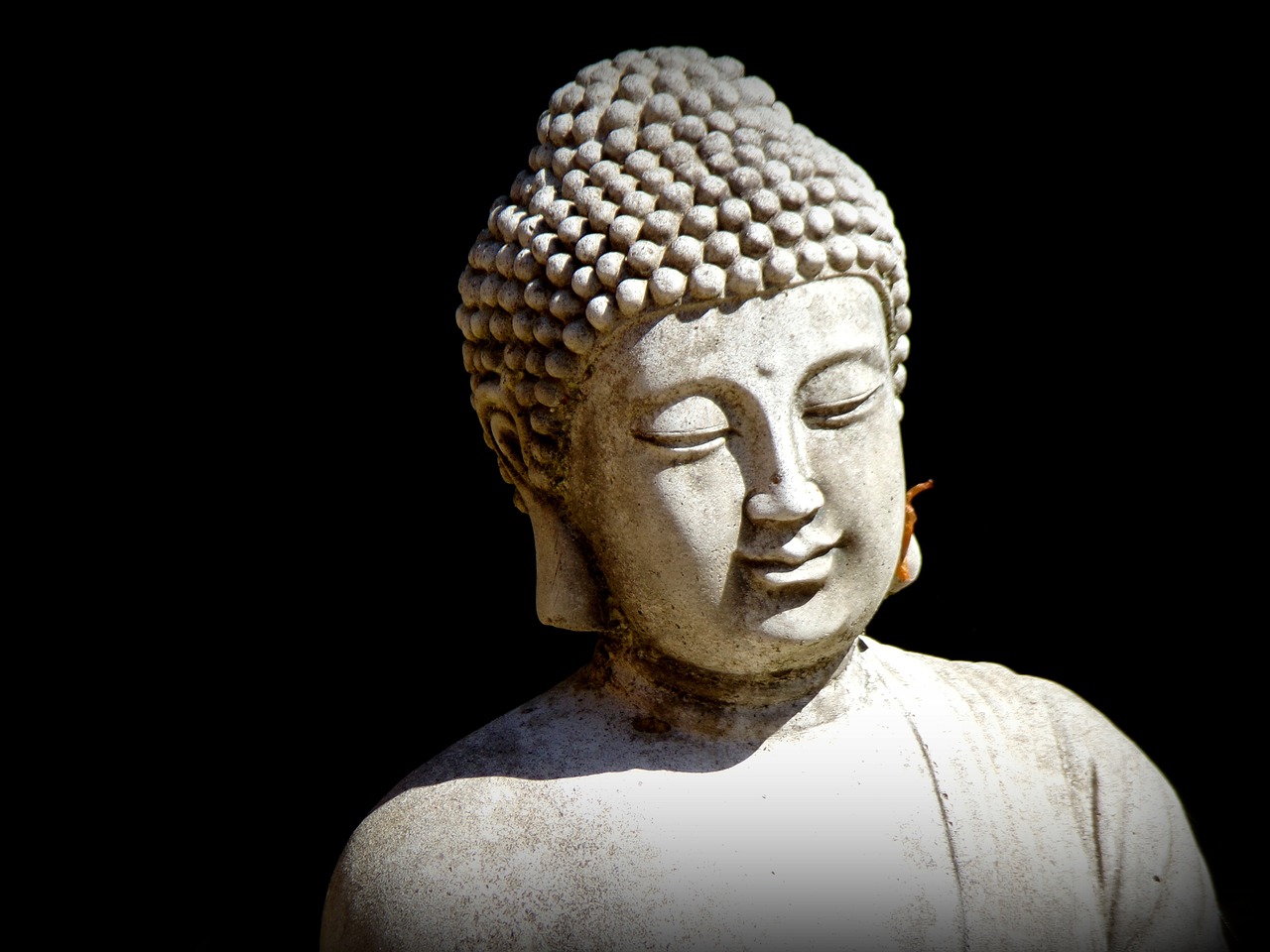
Legacy in Modern Philosophy
Parmenides' influence on modern philosophy is nothing short of profound. His radical ideas about being and reality have sparked debates that continue to resonate through the ages. Think about it: how often do we question the nature of existence? Parmenides was one of the first to challenge our perceptions, urging us to look beyond the surface of sensory experiences. This has opened up a Pandora's box of philosophical inquiry that modern thinkers grapple with today.
Many contemporary philosophers find themselves standing on the shoulders of giants, and Parmenides is undoubtedly one of them. His assertion that change is an illusion has led to deep explorations into the essence of reality. For instance, existentialists and phenomenologists often revisit Parmenides' ideas when discussing the nature of existence. They ponder questions like: Is reality as it appears to us, or is there a deeper truth lying beneath the surface? This inquiry is pivotal in understanding human experience and consciousness.
Furthermore, Parmenides' ideas have influenced the realm of metaphysics and epistemology, particularly in discussions around the nature of knowledge. His distinction between the way of truth and the way of opinion has encouraged modern philosophers to scrutinize the reliability of our perceptions. Are our senses trustworthy guides to reality, or do they merely lead us astray? Such questions echo through the works of philosophers like Kant, who grappled with the limits of human knowledge and the constructs of reality.
Interestingly, Parmenides' legacy also extends into the realm of science. The philosophical implications of his thoughts on being and non-being have prompted scientists to consider the fundamental nature of existence itself. For example, in the field of quantum physics, debates around the nature of particles and their behaviors can trace some of their philosophical roots back to Parmenidean thought. The idea that what we perceive might not be the ultimate reality resonates with the perplexing findings in modern physics.
In summary, Parmenides' legacy in modern philosophy is a rich tapestry woven through various strands of thought, from metaphysics to science. His challenge to conventional wisdom encourages us to question our understanding of reality and existence. As we continue to explore these profound questions, we find ourselves engaging in a dialogue that transcends time, connecting us with the ancient philosopher who dared to think differently.
- What is Parmenides' main philosophical idea?
Parmenides is best known for his assertion that reality is unchanging and that change is an illusion. He emphasized the importance of understanding the nature of being. - How did Parmenides influence modern philosophers?
His ideas have shaped discussions in metaphysics, epistemology, and even science, prompting questions about the nature of existence and the reliability of our perceptions. - What is the difference between the way of truth and the way of opinion?
The way of truth refers to the unchanging reality that Parmenides believed in, while the way of opinion encompasses the subjective and often misleading sensory experiences. - How do Parmenides' ideas relate to contemporary science?
Parmenides' thoughts on being and non-being resonate with modern scientific inquiries, particularly in quantum physics, where the nature of reality is often questioned.
Frequently Asked Questions
- What is Parmenides' main philosophy?
Parmenides' philosophy centers around the idea that being is unchanging and eternal. He argues that change and non-being are mere illusions, challenging our conventional understanding of existence. His thoughts encourage us to rethink how we perceive reality.
- How does Parmenides differentiate between truth and opinion?
Parmenides makes a significant distinction between the way of truth and the way of opinion. The way of truth represents a singular, unchanging reality, while the way of opinion encompasses sensory experiences that can mislead us. He suggests that true understanding lies beyond mere perception.
- What are the implications of Parmenides' views on knowledge?
Understanding Parmenides' perspective on truth leads to deeper questions about the nature of knowledge itself. He posits that knowledge should be rooted in the unchanging reality of being, rather than in the fluctuating realm of sensory experiences.
- How does Parmenides' philosophy contrast with Heraclitus?
Parmenides and Heraclitus represent two opposing views in philosophy. While Parmenides asserts that permanence is the essence of reality, Heraclitus believes in the constant state of change. This tension highlights a fundamental debate in metaphysics about the nature of existence.
- What influence did Parmenides have on later philosophers?
Parmenides' ideas have significantly shaped the thoughts of many philosophers, especially Plato and Aristotle. His concept of an unchanging reality influenced Plato's theory of forms, which distinguishes between the material world and the ideal.
- How do modern philosophers engage with Parmenides' ideas?
Parmenides' influence continues to resonate in modern philosophy, prompting discussions about the nature of existence and reality. Contemporary thinkers grapple with his metaphysical insights, exploring how they relate to current understandings of being.

